If you’re looking to savour the taste of nostalgia coupled with a great gastronomic experience, you might want to head to these ‘legendary restaurants’ and dessert spots spread across the country. Not only are these spots regarded highly for the stunning histories that prequel them, but also for their prowess of dishing up pure magic.
Mind you, all of the below-mentioned spots have made it to ‘Taste Atlas’ — an experiential travel online guide — and here we explore what sets them apart.
1. Paragon Restaurant, Kozhikode
Biryani and its flavours are deeply ingrained in the palates of Indians. And celebrating this association for 85 years is Paragon Restaurant in Kozhikode, Kerala.
The region’s history — the prevalence of the Mughal-Arab culture around the 1900s — set the stage for the emergence of Malabari cuisine. The biryani in particular is steeped in history and is an amalgamation of local produce seasoned by traditional cooking methods. While kaima (short groaned aromatic rice) gives the dish its unique flavour, the chicken is marinated in yoghurt and spices, and the preparation is allowed to cook in its own heat in a pot.
2. Tunday Kababi, Lucknow
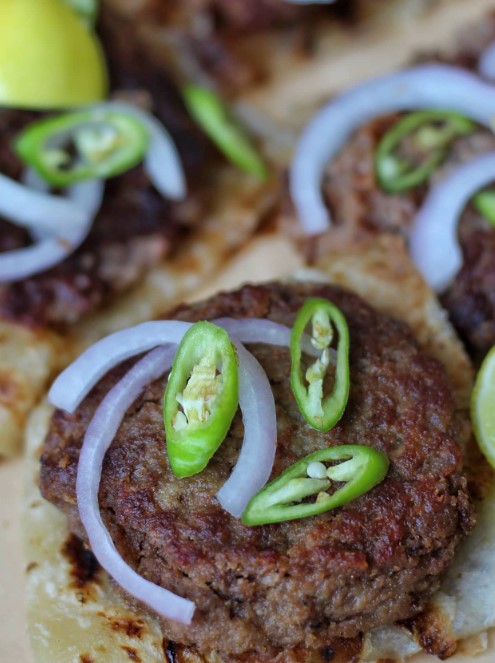
What’s the best part about kebabs (meat that is roasted on skewers)? It’s juicy texture, you say? Well, you might be surprised to know that up until the 17th century, kebabs were chewy and coarse. And it was Nawab Asaf-ud-Daula who changed this reality.
Turns out it was a dental concern that led him to come up with the juicy meats. As age caught on, the nawab (sovereign ruler) began to lose teeth. But he did not want to stop gorging on the dish he loved the most. So, a contest challenging people to come up with the softest kebabs was announced.
It was a one-armed man, Haji Murad Ali, who won hands down and started Tunday Kababi in Lucknow in 1905 — where the tunday kebabs (tunday translating to ‘without an arm’) have patrons across the world. They come from far and wide to taste the galouti kebabs, which are believed to comprise over 160 spices in a unique ratio.
3. Peter Cat
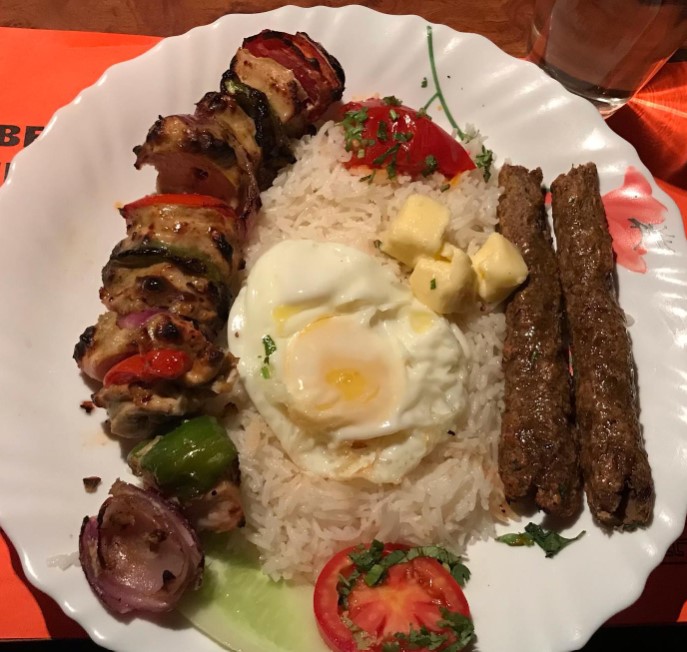
Returning to the magic of the kebab, from the tunday kebabs of Lucknow, we travel eastward to Kolkata where we relish the chelo kebabs at Peter Cat founded in 1975.
Speaking to My Kolkata, founder Nitin Kothari shared, “When I opened Peter Cat in 1975, the kebab sales started to soar, and this dish called ‘Chelo Kebab’ began to dominate. To meet the demand, I had to add more tandoors. Traditionally, kebabs are eaten with naan (a flatbread), not rice. However, I’ve always had a fondness for rice, and it turns out the people in Kolkata share that preference. So, I pondered, why not create a dish that combines the best of both worlds? We added poached or fried eggs and a touch of butter. That’s how Chelo Kebab came about.”
4. Amrik Sukhdev, Murthal
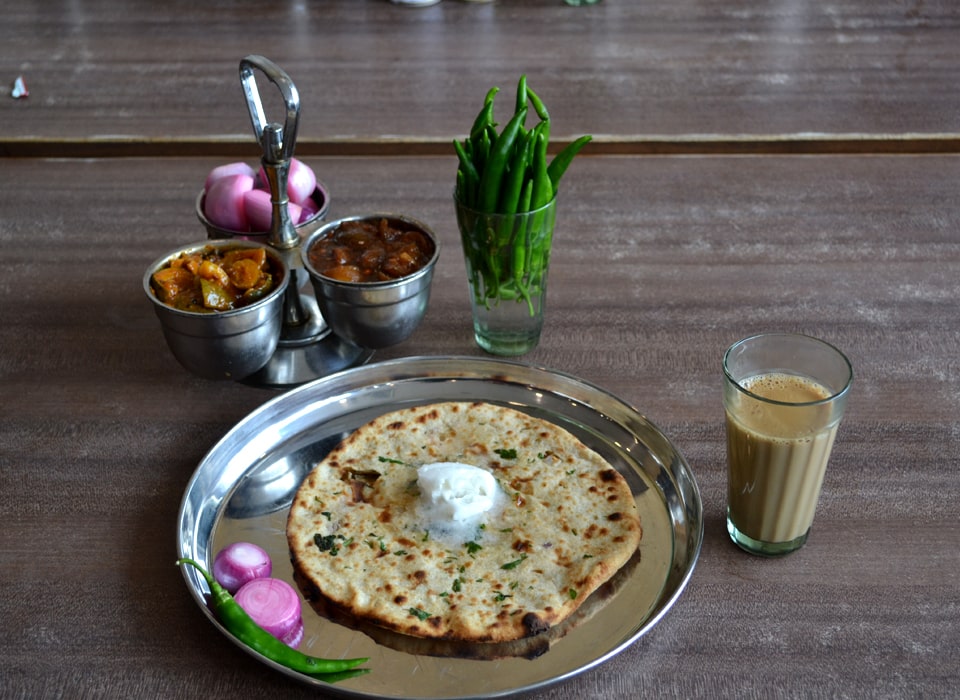
They say the best food often has the most humble origins. And such is the story of Amrik Sukhdev. Little did Sardar Prakash Singh fathom that his eatery — started in 1956 as a dhaba (roadside food joint) for truck drivers — would one day attract paratha (flatbread) connoisseurs from across the world.
In the years that followed from inception, the tent and wooden pole structure transformed into a luxury outlet helmed by Singh’s sons Amrik Singh and Sukhdev Singh. If you grew up cherishing memories of your mother dunking dollops of butter on your parathas, relive the same at Amrik Sukhdev, but with a wide variety of options to choose from. The eatery offers more than 11 types of tandoori parathas among other Indian dishes.
5. Mavalli Tiffin Rooms, Bengaluru
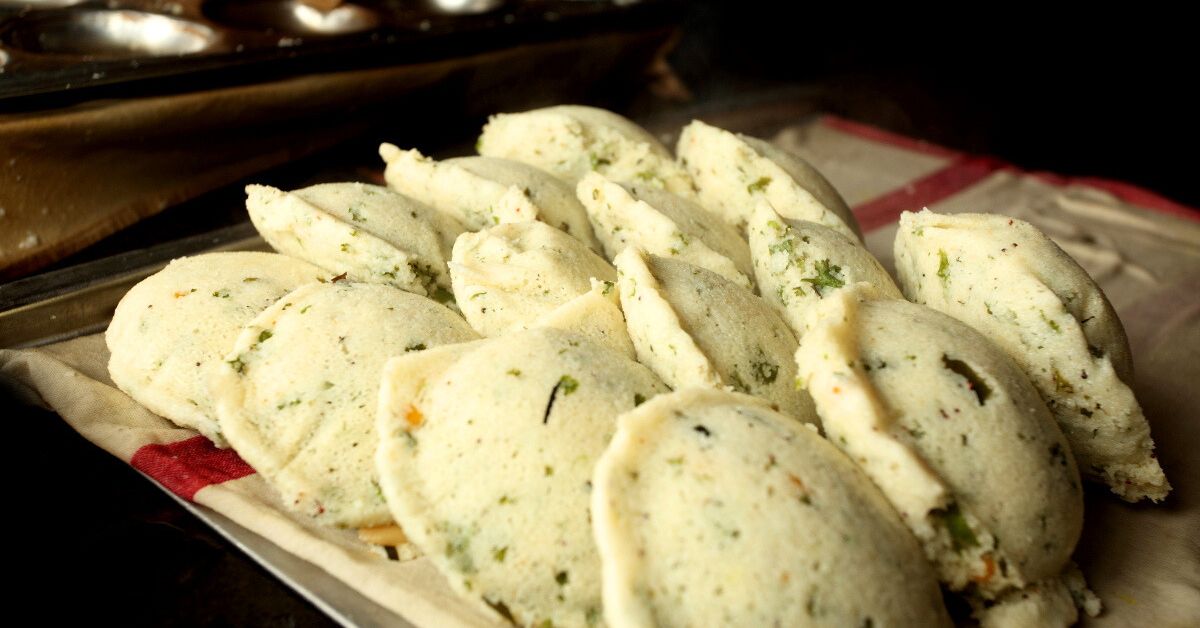
Right from Bollywood veteran Shashi Kapoor to Kannada film legend Dr Rajkumar, everyone has loved the Mavalli Tiffin Rooms in Bengaluru, which dates back to the year 1924.
Our story begins with three brothers — Parameshwara Maiya, Ganappayya Maiya, and Yagnanarayana Maiya — who left a small, sleepy hamlet near Udupi in South Canara in search of greener pastures and found their way to Bengaluru. Skilled in cooking, the boys found employment in kitchens across the city.
Later, the brothers started MTR, born as a small restaurant on Lalbagh Fort Road in the city. To date, its rava idlis (steamed South Indian dish made of semolina) evoke nostalgia among its patrons.
6. Karim’s, New Delhi
Sample kebabs from anywhere in the world and then, those from Karim’s, and you will see how they are easily distinguishable.
The focus at Karim’s has always been on authentic and homely food that takes one back to the Mughal era when kebabs dominated the scene. With a lime and a sprinkle of onions on the side for flavour, you are in for a true feast. Since 1913 the outlet and its branches have been delighting kebab aficionados.
The story goes that Mohammed Awaiz once worked as a cook in the Mughal court and escaped when the British ransacked Delhi. While he settled in Ghaziabad, he taught the tricks of the trade to his son Haji Karimuddin who set up a food booth in 1911. The kebabs and korma (meat braised with yoghurt, spices and stock) are famous here.
7. Ram Ashraya, Mumbai
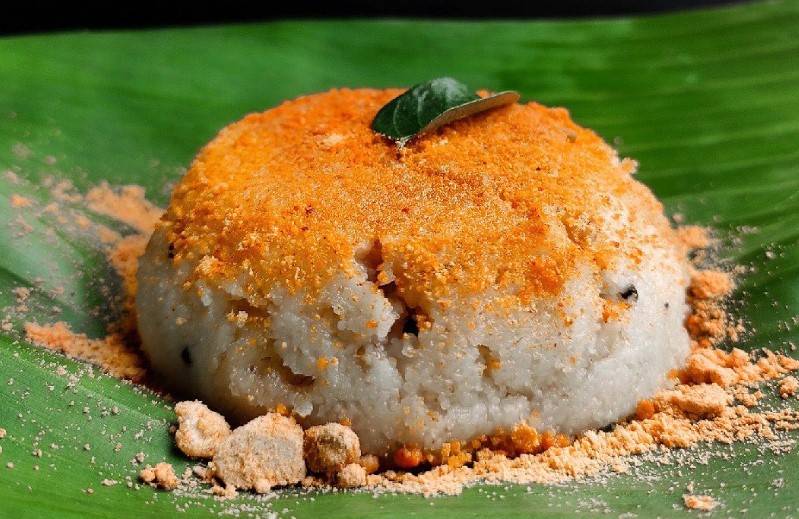
Located just outside Matunga station, the eatery — founded by an immigrant Shyambabu Shetty almost 85 years ago — is known for having its specials listed out in chalk on a board at the entrance.
The star at this outlet is the upma (a porridge made from dry roasted semolina). Among the hit items are the sheera (an Indian pudding made with semolina, ghee, sugar, cashews and raisins), butter idlis, and bisbele bhath (a tangy rice-based dish) that fuels college and office goers before they begin their day.
Also featured in the list by Taste Atlas are —
Pune’s Kayani Bakery for its world-famous Shrewsbury biscuits and Chitale Badhu Mithaiwale for their bakarwadi (a crispy deep-fried snack that is sweet and spicy).
Kolkata’s KC Das for its rasgullas (dumpling shaped balls made of sweetened cheese and dunked in sugar syrup), Balaram Mullick and Radharaman Mullick for its sandesh (a Bengali sweet made with Indian cottage cheese), and Flurys for its delectable rumballs.
The Karachi Bakery in Hyderabad for its fruit biscuits.
Mumbai’s K Rustom & Co for the ice cream sandwich, Naturals Icecream for the tender coconut ice cream, and Apsara Ice Cream for the guava ice cream.
Delhi’s Kuremal Mohanlal Kulfi Wale for their kulfi (frozen Indian dessert) and Old Famous Jalebi Wala for their zulbia (a deep-fried pastry made with saffron sugar syrup).
Lucknow’s Prakash Kulfi for the kulfi falooda.
Pabba’s in Mangaluru for the gadbad ice cream.
Corner House in Bengaluru for their ‘Death by Chocolate’ ice cream.
(Edited by Pranita Bhat)
No comments:
Post a Comment